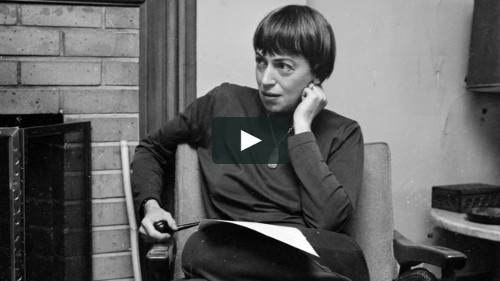SUBSCRIBE TO THE FREE NEWSLETTER
How art and science can work together to change us
At a recent a poetry retreat I attended in Cumberland, British Columbia on Vancouver Island, there was a lot of talk about the intersection of science and poetry. (I’ll have more on the conference in an upcoming newsletter). Science seems to have been placed in an unfair situation of convincing us to act on a host of environmental issues: climate change, decline of salmon runs, wildfire policy, and the recovery of endangered orcas. But factual reporting and scientific studies can only do so much to sway opinion.
That’s where art comes in– it can help us understand and act based on a more emotional response to events.. As Kafka once wrote, art is the an “axe for the frozen sea within us.” We certainly saw this at Cascadia Magazine after we published Paul Nelson’s poem “Elegy for Tahlequah’s Calf,” a response to the orca mother who grieved for her dead calf for 17 days in the Salish Sea. It’s the most popular piece we’ve published, and it generated a great amount of discussion on social media. Clearly, the emotions of sadness, frustration, and anger at the situation humans have put these endangered whales in found expression in Paul’s poem, and helped in a small way to push forward discussion about what must be done to protect these creatures.
“Scientists know the language they use isn’t working,” Paul told me in a recent interview. “Science is about being objective, but poetry is incredibly subjective. So how do we get across that scientific detail, but with an emotional kick? If poets can incorporate these luminous details from science, but in a way that makes an emotional connection with reader, that’s how we’re going to get change. And now is when non-human nature needs advocates more than ever.”
You can read Paul’s poem online here at Cascadia Magazine. How has the story of Tahlequah and Paul’s poem affected you? Send us your thoughts at info@cascadiamagazine.org. We’ll share some of your thoughts in an upcoming newsletter.
And if you appreciate the work Cascadia Magazine and Cascadia Daily do to present poetry and other art that connects us to important issues, please consider becoming a supporting reader at our donate page. And if you’re already a supporting member, thank you!
Now online at Cascadia Magazine: Coring the Forest
An all-female crew works in the Blue Mountains of northeast Oregon taking tree core samples to learn more about human impacts on forest ecology. In a well-crafted feature by Paul Lask, you’ll learn what it’s like to work in the natural beauty of the Umatilla National forest gathering data about wildfire cycles and climate change — all locked deep inside grand fir, ponderosa, and Douglas fir.
” I was handed a bark chip and asked if I could smell the vanilla. It smelled as if I was holding a bowl of ice cream. Laura’s description of the smell of a spruce sample was a “thunderstorm mixed with the garden section at Walmart.””
Read the full article online here at Cascadia Magazine.
Ian Campbell drops out of Vancouver mayor’s race
Ian Campbell, a candidate for Vancouver mayor and hereditary chief of the Squamish Nation, made a surprise announcement yesterday withdrawing from the race. This leaves Vision Vancouver, the centrist party of current mayor Gregor Robertson, without a candidate. A recent poll finds independent, progressive minded candidate Kennedy Stewart is in the lead, but many voters are still undecided. In other political news, Crosscut looks at Washington’s 8th congressional district where Republicans and Democrats both have hopes of winning. Things are also close in southwest Washington’s congressional district, according to a piece at Portland Mercury. And the Oregonian has a detailed report on the Oregon gubernatorial candidates’ stand on state spending and taxes.
A new strategy on anti-trust could hit Amazon
The New York Times has a report on Lina Khan, a 29-year-old attorney whose scholarly paper is causing lawyers to re-think their approach to anti-trust (based not only upon commodity prices) that could spell trouble for Seattle-based retailer Amazon, as well as Google, Facebook and other mega-tech companies.
Human costs of fighting fires in Oregon
OPB has a fantastic, detailed feature on the difficulties facing wildland firefighters, including injury, mental fatigue, and sometimes death. “Fighting wildfire is inherently risky, but it has become riskier than its needs to be.”
Scrub jays are invading Seattle
Bird Note has a brief audio feature on how a bird species once never seen in Seattle and the northern half of Washington is now calling it home: the California scrub jay. The reason for its move north? Climate change.
How naked Burt Reynolds ended up on a Tlingit paddle
Over at KUOW, Sydney Brownstone investigates why the naked image of Burt Reynolds found its way into the artwork on a traditional Tlingit canoe paddle. In a timely piece after the passing of the Hollywood star, she finds that the paddle is the work of artist Indigenous artist Alison Marks, who incorporates liberal doses of humor in her work.
Documentary on Ursula K. Le Guin debuts in Portland
Willamette Week reports on Arwen Curry’s new documentary about one of Cascadia’s greatest writers, the late Ursula K. Le Guin. The film, Worlds of Ursula K. Le Guin, is getting rave reviews, and it debuts at NW Film Center’s Whitsell Auditorium in Portland Sept 14-16. For more on how Le Guin reshaped how we think of sci-fi and fantasy, read Becky Chamber’s essay at Literary Hub, “How the Left Hand of Darkness Changed Everything.”
That’s today’s cornucopia of delightful links to arts, culture, and news across Cascadia. Have a great evening! –Andrew Engelson
Photo credit: screen shot from the trailer of Worlds of Ursula K. Le Guin courtesy of Vimeo

